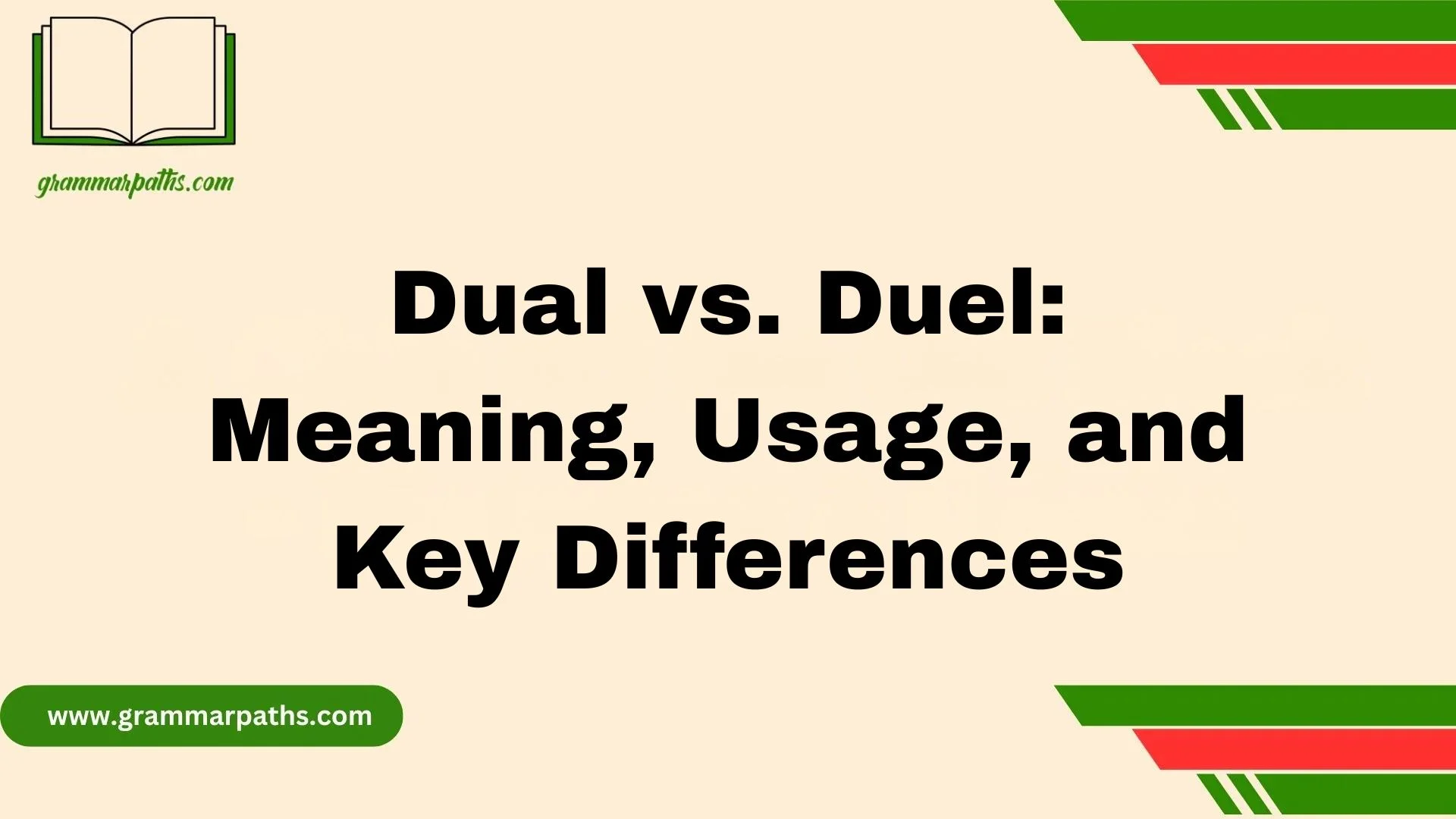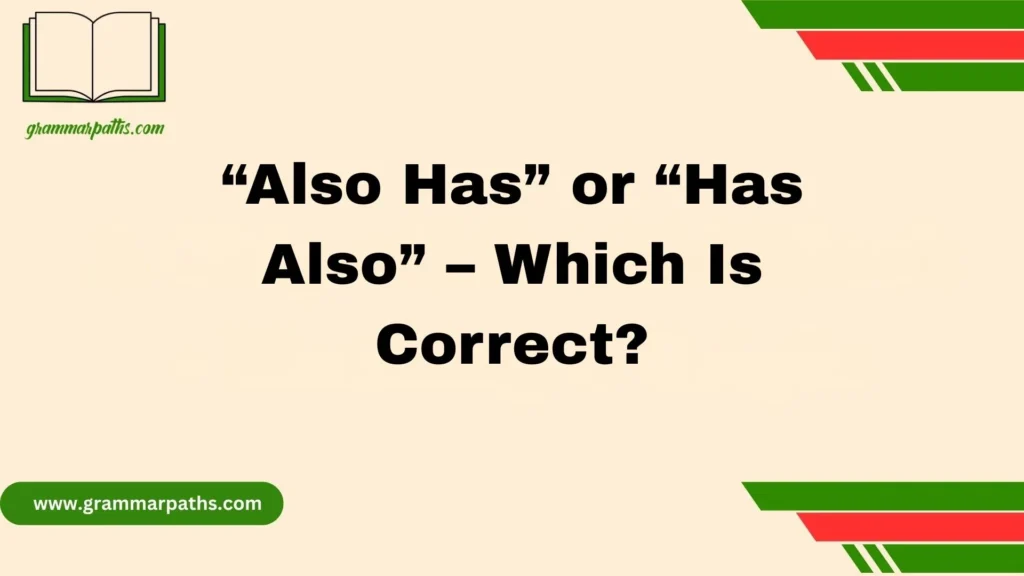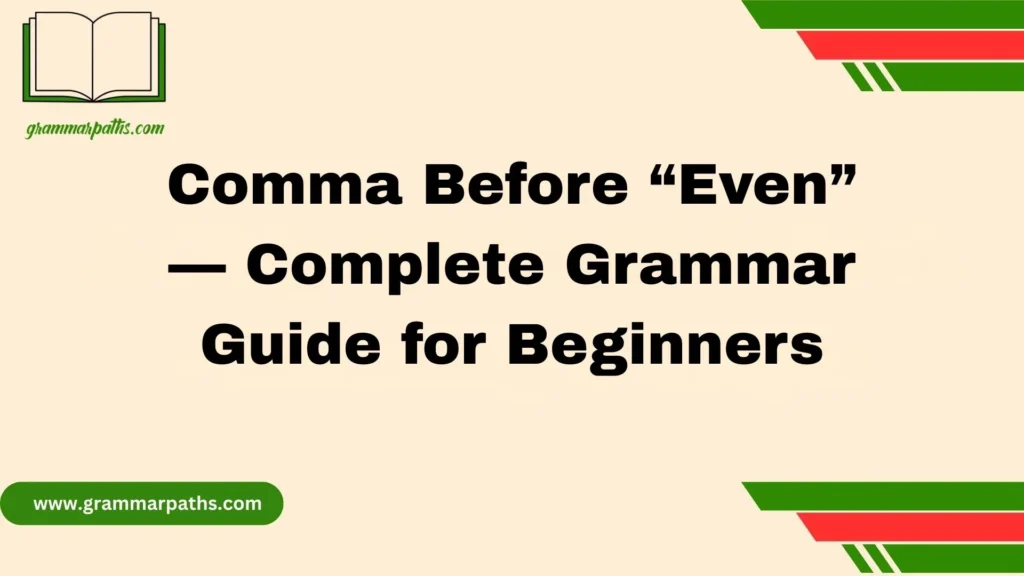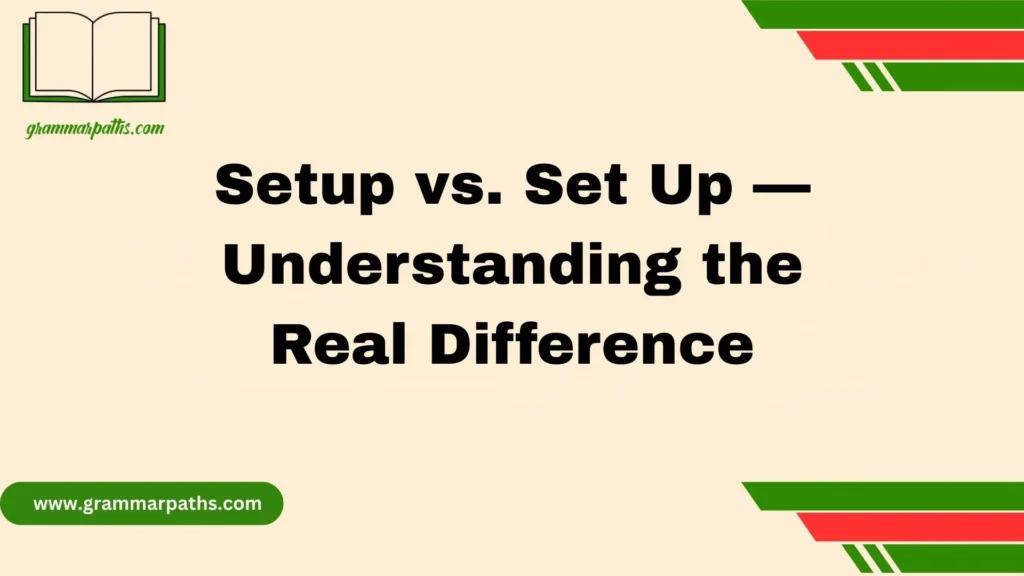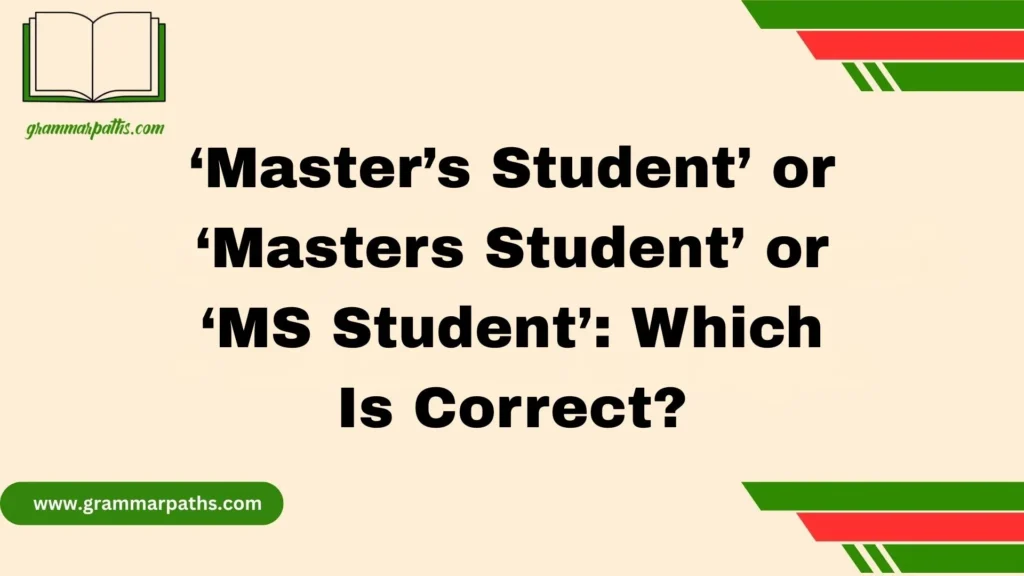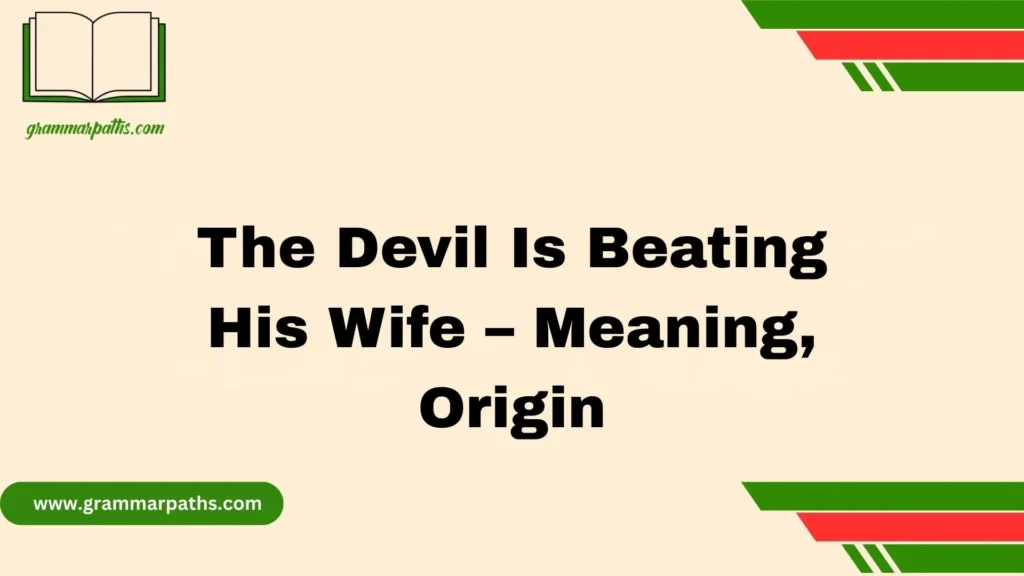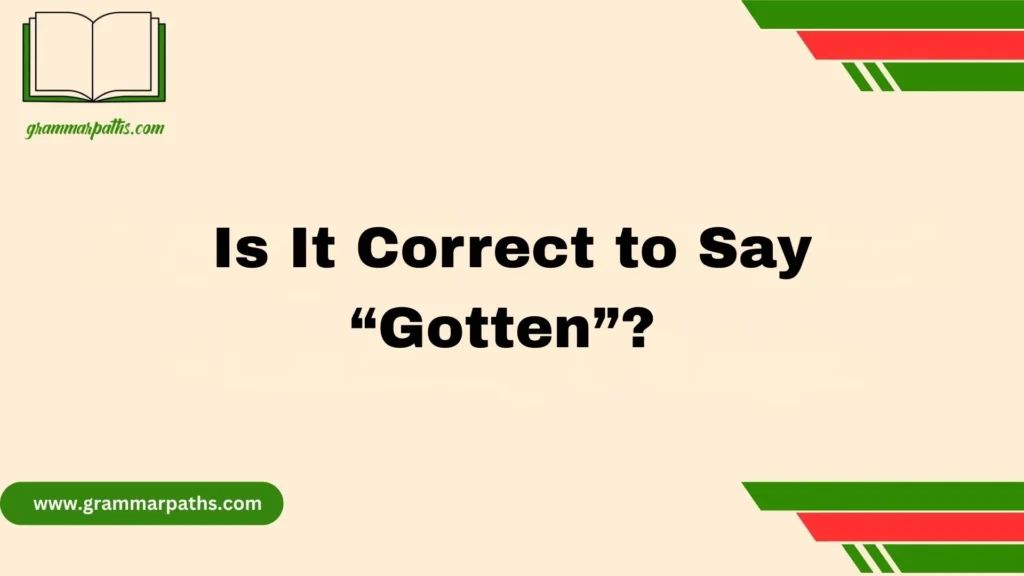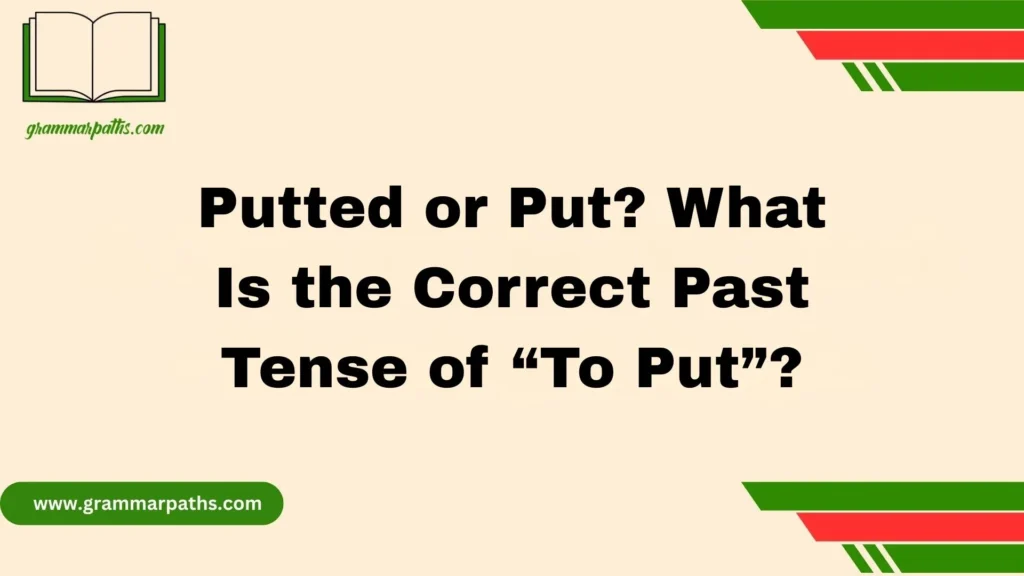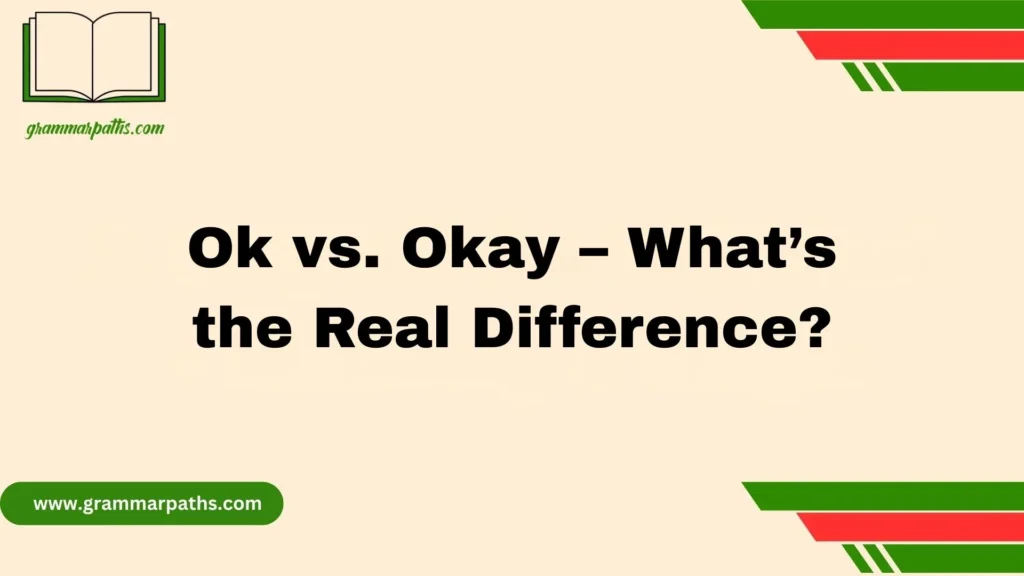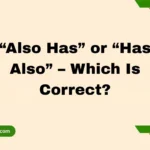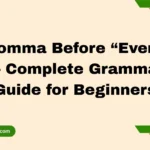As a writer and editor, I’ve often seen people confuse the words Dual and Duel because they are similar-sounding homophones. Their meaning is very different—one points to a battle or a challenge, while the other refers to something twofold with parts or elements. Using the wrong word can be a mistake that hurts the clarity of your sentence, whether it’s in a blog, an academic paper, or an article. In my own writing, I’ve caught these slips when checking words for grammatical accuracy, as a single misstep can throw off the tone and flow of a piece. A good guide to avoid this is to look at the context and the nuances of the terms, and to rely on memory cues that match real-life situations.
Over the years, I’ve shared tips, examples, and simple tricks with both student and reader groups, whether they were language enthusiast circles or professionals aiming to polish their skill. The format of practice-based learning makes it easier not to mix up words that only sound alike but have a huge difference in English. Remembering the right rule helps prevent errors in communication, especially in cases where a duel represents a competition between two person figures, while dual explains a structure made of two connected ideas. From my own perspective, mastering this distinction is less about memorizing lists and more about building lasting insights through repeated use in writing.
Understanding Homophones: Dual vs. Duel
Homophones are words that sound the same but have different meanings and spellings. English is full of them—think of pair/pear, bare/bear, or flower/flour.
Why does English have so many? The short answer: it borrows heavily from other languages and evolved over centuries. Latin, French, and Germanic influences shaped modern English, creating plenty of overlaps in pronunciation but differences in spelling and meaning.
“Dual” and “duel” are perfect examples. Despite sounding the same, they have distinct functions:
- Dual → always an adjective describing something “twofold” or “double.”
- Duel → can be a noun (a fight) or a verb (to fight).
Understanding their roles in grammar is the key to mastering their use.
The Meaning of “Duel”
The word “duel” has a sharp, combative tone to it.
- As a noun → it refers to a fight, contest, or struggle between two people, groups, or forces.
- As a verb → it means to fight or compete, whether literally or figuratively.
Examples of “duel” in sentences:
- The two knights prepared for a deadly duel.
- The chess masters dueled for hours before a winner emerged.
- The company’s CEO is dueling with regulators over new policies.
The key takeaway: “duel” always implies opposition or conflict—physical, intellectual, or metaphorical.
The History and Evolution of “Duel”
The origins of duel trace back to the Latin word duellum, which literally meant “war” but also hinted at “a war between two.” By the Middle Ages, the word had evolved to represent a formalized combat between individuals to settle disputes.
Historical highlights:
- Medieval Europe → Duels were a way to restore honor or resolve accusations when courts failed.
- France and England → Noblemen engaged in duels with swords or pistols, often with seconds (assistants) present.
- United States → One of the most famous duels in American history was the 1804 Hamilton–Burr duel, which ended with Alexander Hamilton’s death.
By the 19th century, most nations outlawed dueling because it was seen as barbaric and unnecessary. But the concept of duel as symbolic conflict survived and entered literature, sports, and pop culture.
Duels in Modern Culture
Today, the word duel is rarely about actual sword fights. Instead, it lives on in media, entertainment, and sports.
Examples in popular culture:
- Star Wars → Lightsaber duels between Jedi and Sith are legendary.
- Harry Potter → The magical dueling club at Hogwarts made “duel” central to wizarding battles.
- Sports and Gaming → Commentators describe intense rivalries as “duels,” whether it’s tennis champions or esports players.
- Legal and Political Arenas → Headlines often call heated courtroom battles or election debates “duels.”
This shift shows how “duel” expanded from literal violence to metaphorical competition.
The Meaning of “Dual”
Unlike “duel,” the word dual carries no sense of conflict. It’s about twofold nature or doubling.
- Part of speech: Always an adjective.
- Definition: Describes something that has two parts, aspects, or functions.
Examples of “dual” in sentences:
- She manages a dual role as both teacher and administrator.
- The car runs on a dual-fuel system.
- He enjoys his dual identity as both scientist and artist.
The word dual comes from the Latin dualis, meaning “two.” That root meaning has never changed.
Common Uses of “Dual” in Everyday English
You’ll see “dual” frequently in professional, academic, and technical contexts.
Here are common expressions with dual:
| Phrase | Meaning | Example Sentence |
| Dual citizenship | Belonging to two countries legally | She holds dual citizenship in the U.S. and France. |
| Dual purpose | Serving two functions | The device has a dual purpose: cooking and steaming. |
| Dual roles | Holding two positions at once | He plays a dual role as actor and producer. |
| Dual system | Two systems working together | The school uses a dual system of in-person and online classes. |
| Dual meaning | A word or phrase with two interpretations | That phrase has a dual meaning depending on context. |
This versatility makes “dual” important in law, technology, government, and everyday speech.
Dual vs. Duel: Side-by-Side Comparison
Here’s a quick look at how they differ:
| Feature | Duel | Dual |
| Part of Speech | Noun / Verb | Adjective |
| Meaning | A fight, contest, or competition | Twofold, double, consisting of two |
| Context | Conflict, rivalry, competition | Describing roles, systems, or features |
| Example | The knights fought a duel. | She has dual responsibilities. |
👉 Easy memory trick: “duel” has “e” for enemies, “dual” has “a” for adjective.
Common Mistakes and Misuse
Because the two words sound identical, writers often slip up.
Frequent mistakes:
- Writing “dual” when describing a fight →They had a dual at dawn.
- Writing “duel” when describing twofold roles →She has a duel citizenship.
These mistakes stand out in professional writing. A good habit is to pause and check the meaning before typing the word.
Memory Tricks: How to Never Mix Them Up Again
Here are some easy hacks to keep them straight:
- Think of “duel” as a duel with enemies. Both words have “e.”
- “Dual” means two. Both words have “a,” and the word “pair” also has “a.”
- Use a quick sentence test:
- If it’s about conflict → use duel.
- If it’s about two → use dual.
Mnemonic: “Two roles? Dual. Two rivals? Duel.”
Quick Practice Section
Try these and see if you can choose the right word:
- The two lawyers prepared for a heated courtroom (dual/duel).
- She manages a (dual/duel) role as both coach and mentor.
- The knights met at dawn for a (dual/duel).
- He holds (dual/duel) nationality in the U.K. and U.S.
Answers: 1. duel, 2. dual, 3. duel, 4. dual.
Conclusion
The difference between Dual and Duel might seem small because they are similar-sounding homophones, but the meaning is entirely different. A duel refers to a battle or challenge between two person figures, while dual highlights something twofold, made of parts or elements. For any writer, editor, student, or professional, using the right word in a sentence adds clarity, improves the tone and flow, and avoids grammatical errors in writing. By focusing on context, practicing with examples, and applying smart tips and tricks, you’ll avoid the mistake of mixing them up and strengthen your English communication skills.
FAQs
Q1: Why do people confuse Dual and Duel?
Because they are similar-sounding homophones, many readers and even enthusiasts make this misstep.
Q2: What is the best way to remember the difference?
Use memory guides—think of a duel as a fight or competition, and dual as something with two elements or parts.
Q3: Can using the wrong word affect professional writing?
Yes. In a blog, academic paper, or article, confusing these terms changes the context, creates a mistake, and weakens clarity.
Q4: How can students improve their understanding?
Through learning activities, practicing examples, and reviewing rules with insights from teachers, students can avoid mixing up terms.
Q5: Does this apply only to English learners?
No. Even native speakers and seasoned professionals in writing can make such errors, which shows the importance of knowing the difference and practicing communication with precision.

Mia Rose is the passionate writer and founder of GrammarPaths.com, a resource dedicated to helping learners master English grammar, idioms, and writing skills with ease. With a deep love for language and years of experience in teaching and content creation, Mia simplifies complex grammar rules into clear, practical guides that readers can instantly apply.
